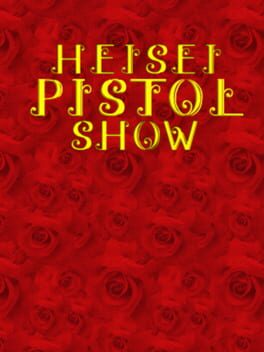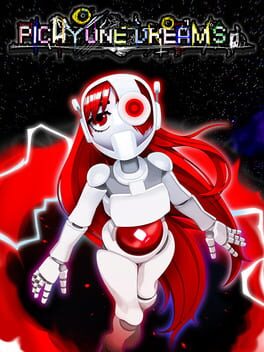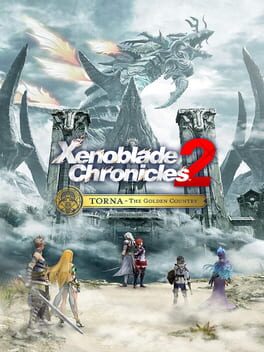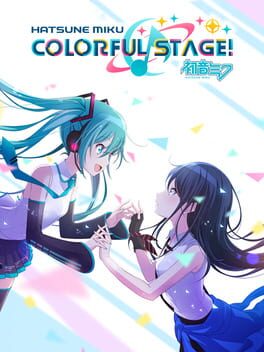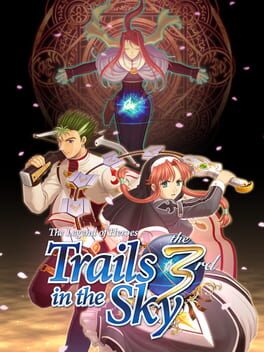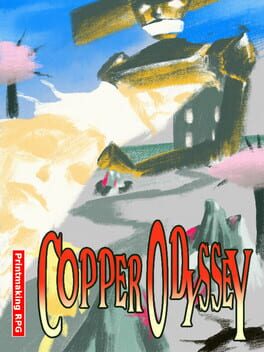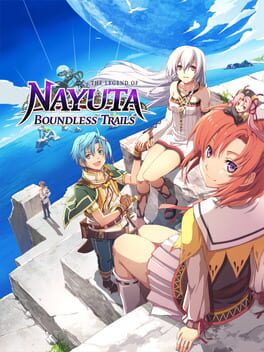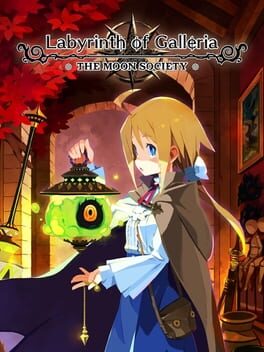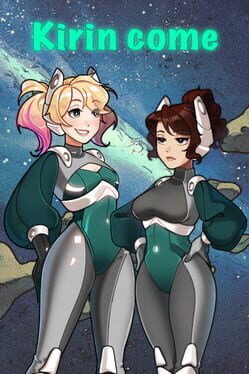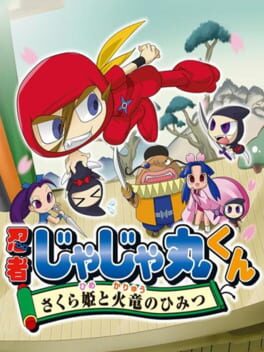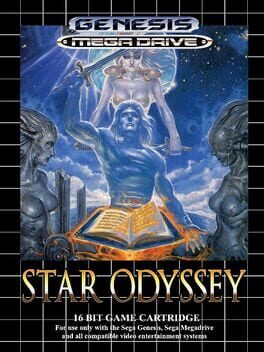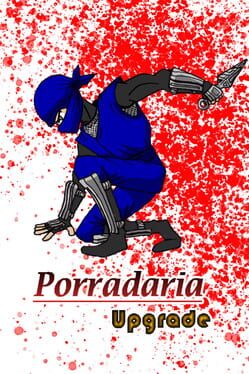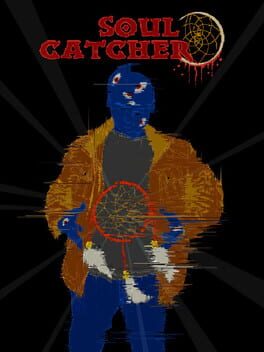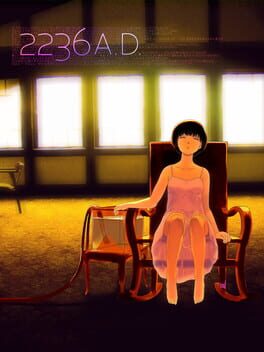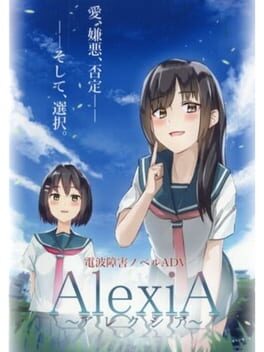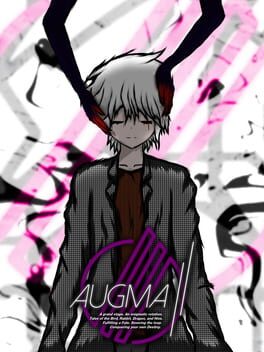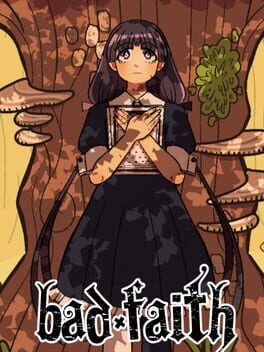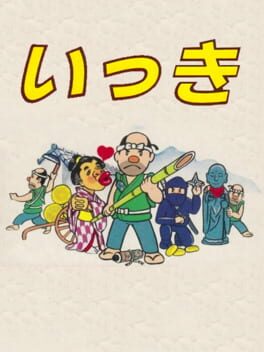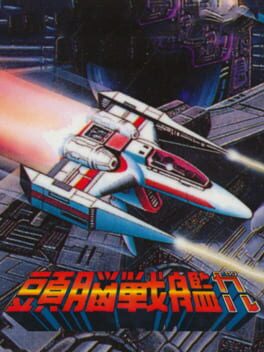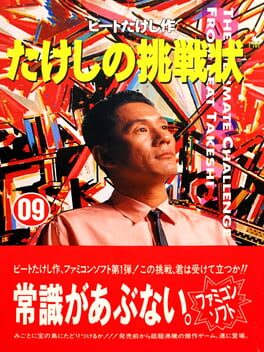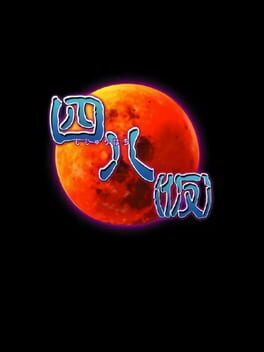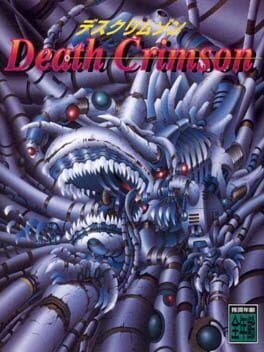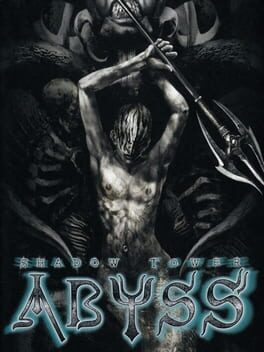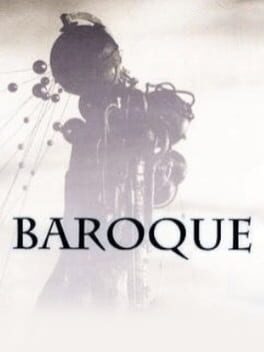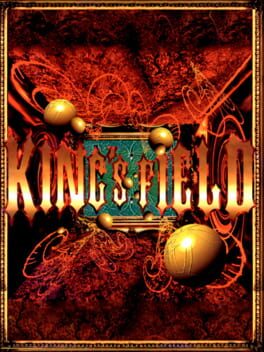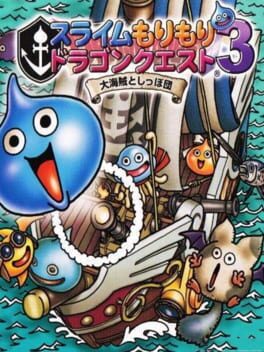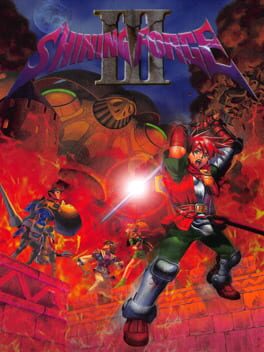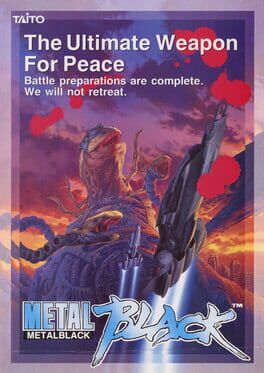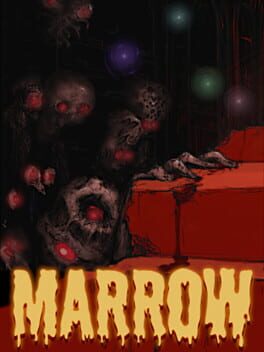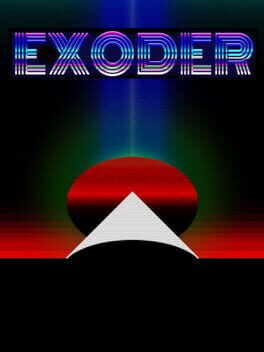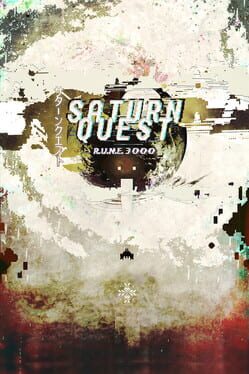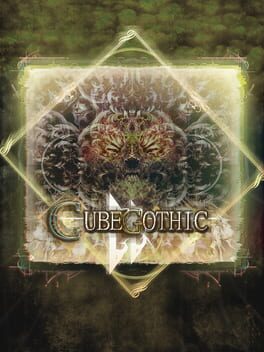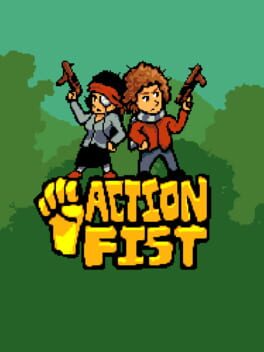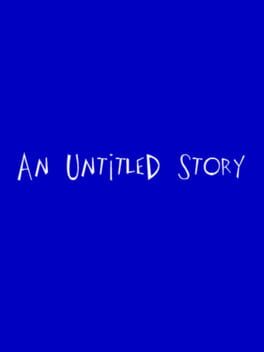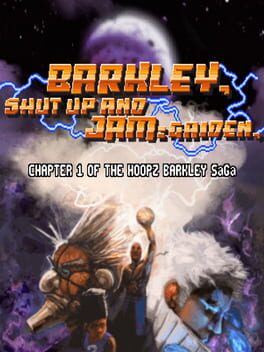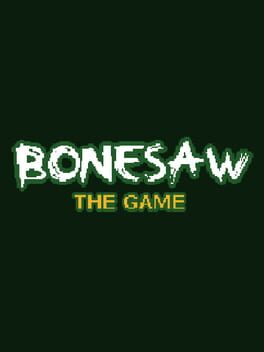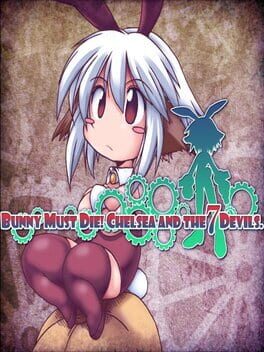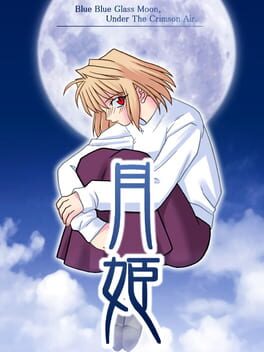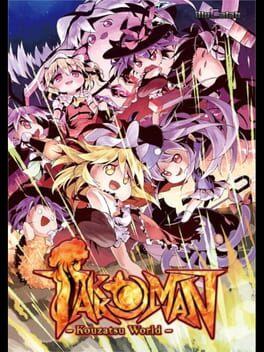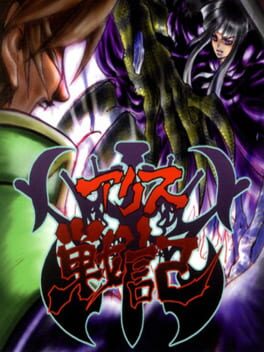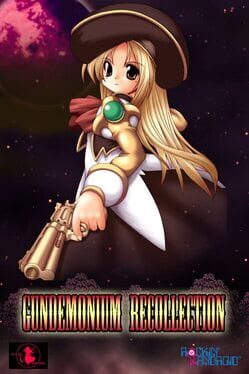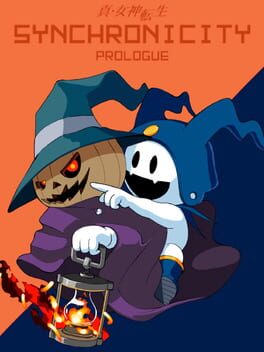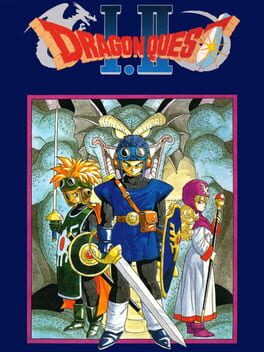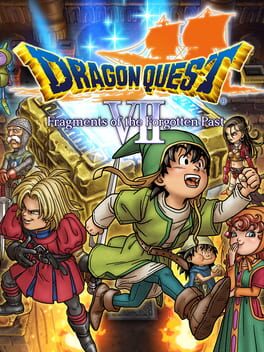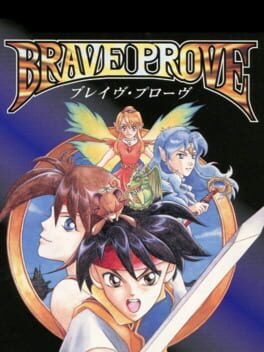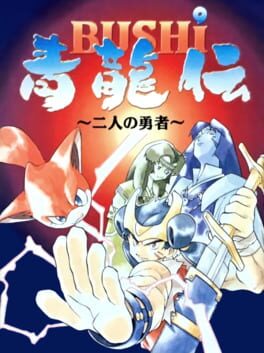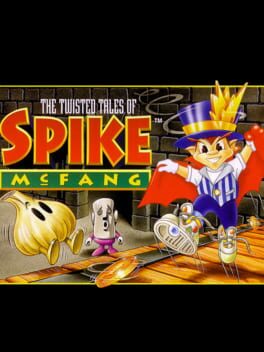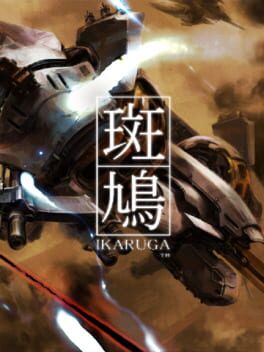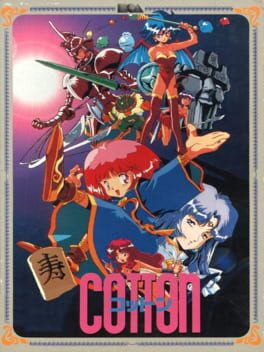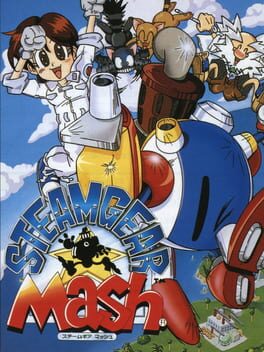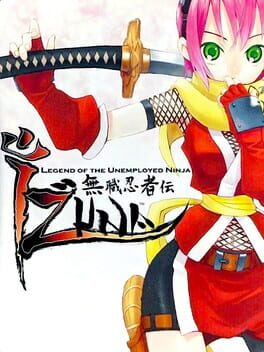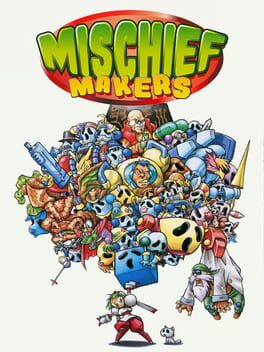WildMike48
33 reviews liked by WildMike48
Heisei Pistol Show
2008
Heisei Pistol Show is indicative of a lot of the zaniness and beautiful creativity that has come out of the RPG maker community. I had only heard about this game a few months ago with its unique premise and intriguing visuals looking to be up my alley. Having beaten it, practically, one sitting I say it delivered on a lot of its initial intrigue while also not quite matching some of the enthusiasm surrounding it.
You play as Heart, a lolita-dressed hitman who has been betrayed by his ex-lover. Now he is on a quest for vengeance that involves dealing with three fellow top assassins. This initial setup reminds me a lot of "Kill Bill" with a sort of similar structure but is mainly matched with the style and flair in which the story is presented. As you progress you slowly reveal, in typical RPG-maker fashion, that not everything is as it seems.
It surprised me that the game acts as a simple "puzzle" exploration game. I say "puzzle" but all of the obstacles in the game are simple logic and word puzzles including the few gunfights. In reality, the game is more focused on the player exploring the surreal levels the game consists of and how they eventually tie back into the main narrative. It was interesting seeing how a lot of these non-sensical stages eventually made some sense but some parts still felt a lot like the author slapped down some of the basic assets of the engine.
A lot of people seemed to be affected by the game's story which chronicles a lot about "what it means to be in love", "how love is defined" and "how do you maintain your happiness". These subjects were extremely meaningful to the author and to many who experienced it, but I can't say it had the same effect on me. For me, there were a lot of parts of the narrative that felt a little too comical to be taken super seriously with only the last few minutes of the game striking a chord for me emotionally.
Though the narrative did not affect me, I adored this game's style as previously mentioned. For starters, all of the character portraits have this 2000s Deviant Art style that, while maybe ugly to some, I find incredibly charming and wish more of the game looked like this. A lot of the cutscenes of the game also have this really fun energy to it that I have never seen in other games like this. Also, the soundtrack is one of the best I've heard in a while with each track perfectly used to match both the absurdity and emotional elements of the game.
This was not quite the sleeper classic that I was hoping it would be, but I still greatly enjoyed my time with it. Its absurdist style is worth playing alone, especially given its short length. Games like this make exploring the RPG Maker genre worth it.
P.S.: It saddens me to read that this developer passed away as, going off of this game, they had a beautifully creative soul.
You play as Heart, a lolita-dressed hitman who has been betrayed by his ex-lover. Now he is on a quest for vengeance that involves dealing with three fellow top assassins. This initial setup reminds me a lot of "Kill Bill" with a sort of similar structure but is mainly matched with the style and flair in which the story is presented. As you progress you slowly reveal, in typical RPG-maker fashion, that not everything is as it seems.
It surprised me that the game acts as a simple "puzzle" exploration game. I say "puzzle" but all of the obstacles in the game are simple logic and word puzzles including the few gunfights. In reality, the game is more focused on the player exploring the surreal levels the game consists of and how they eventually tie back into the main narrative. It was interesting seeing how a lot of these non-sensical stages eventually made some sense but some parts still felt a lot like the author slapped down some of the basic assets of the engine.
A lot of people seemed to be affected by the game's story which chronicles a lot about "what it means to be in love", "how love is defined" and "how do you maintain your happiness". These subjects were extremely meaningful to the author and to many who experienced it, but I can't say it had the same effect on me. For me, there were a lot of parts of the narrative that felt a little too comical to be taken super seriously with only the last few minutes of the game striking a chord for me emotionally.
Though the narrative did not affect me, I adored this game's style as previously mentioned. For starters, all of the character portraits have this 2000s Deviant Art style that, while maybe ugly to some, I find incredibly charming and wish more of the game looked like this. A lot of the cutscenes of the game also have this really fun energy to it that I have never seen in other games like this. Also, the soundtrack is one of the best I've heard in a while with each track perfectly used to match both the absurdity and emotional elements of the game.
This was not quite the sleeper classic that I was hoping it would be, but I still greatly enjoyed my time with it. Its absurdist style is worth playing alone, especially given its short length. Games like this make exploring the RPG Maker genre worth it.
P.S.: It saddens me to read that this developer passed away as, going off of this game, they had a beautifully creative soul.
Picayune Dreams
2023
I've come here
From beyond the bounds of science
I didn't come with a leek
But I wouldn't mind having one
I love virtual singers. My favorite composers and songwriters all use them, and I'd like to say I'm very well versed when it comes to this kind of music. As artistic tools and instruments, it's kind of overwhelming how much potential these voicebanks have. The same song put in two different people's hands can wind up having insanely different reflections, if tuned right. I've heard vocals that sound near identical to a humans, I've also seen them sound so rough and robotic that words are barely legible. Which producers I like, the songs I enjoy, tracks that make me cry, I can talk about those all day if you let me. The history of Vocaloid in general is a very interesting and pervasive one. Does this game do a good job of upholding it?
Kind of. As a game, its incredibly fun. More of a rhythm game than Project Diva, which SEGA has long since chucked into a ditch. I know this style of mobile rhythm game has been done many times in other places, but it works perfectly well. Its all dependant on your ability to follow the beat of a song and tap the notes in tune, unlike in Project Diva where it was more of a battle against the controller (hit x + y + b? What the fuck are you talking about?) since of course, being originally develeoped for an arcade cabinet, it was never going to feel especially good on consoles. This however, being made for mobile, makes the experience leagues better. And the tracklist is insane. Such good picks, a huge range of styles and producers to chose from that doesnt just rely on the classics. Modern Vocaloid producers are insanely talented so I'm more than happy that Sekai keeps up with the current music.
My biggest complaint with this game is how they treat the overall legacy and dignity of the songs they chose, as well as Vocaloid in general. The plot of this game is that of these 5 (human) groups, each supposedly representing a style common in Vocaloid music. Their lives are a wreck but one day their phone flashes and theyre teleported to Miku World, where Miku herself helps these wayward teens through whatever it is they are going through on that particular day. I understand that this game is marketed to young adults, they have to keep Vocaloid relevant, and they also have to sell marketable characters for gacha. But man. I dont give a single shit about any of these people. Some of them are ok, even sweet!- like leo/need is cute. The writing for their stories isnt bad or anything, but the problem arises when they shoehorn these (fake) characters into songs made by real people, with real problems, making it seem like the song is about the characters. Some ditzy idol MitchieM song, ok whatever, but a lot of Vocaloid music tends to be very personal, philosophical even. I feel like its INSANELY disrespectful to overwrite the intentions of the artist to shoehorn in your gacha ocs. Especially with the "depressed" idol group, which they couldnt even be bothered to tackle social issues or anything important besides "my mom makes me do stuff" or "I'm an artist and my brother is annoying" or, confusingly, "my dad is in a Music Coma and its ALL MY FAULT" (relatable, to someone, surely). When a great deal of these songs are about real people's sadness and feelings, I cant help but feel gross seeing Purple Anime Girl #1 cover something like Hated by Life Itself. And they dont just make these people cover these historically important songs, they also create whole new music videos with the Sekai characters pasted over whatever was originally happening? What? How is that right? Even just historically, those original and Project Diva MVs are very important to the culture and rise of the artform. Why paste fucking Mizuki over the video for Hello Worker? She cant even fucking work shes a CHILD. HOW does she relate to the song at all? If you cant properly tackle why a teenager would want to jump off a bridge (as a few producers have wound up ending their lives or passing away otherwise) maybe dont make your bimbo gacha teehee heehaw teen sing a whole song about it. Even regular tracks, if you're already making music FOR the game anyways just keep them out of it.
It makes me a little sad seeing as how this is a lot of children's/young adult's first impression of virtual singers, since I've already heard tales of people playing this game and not knowing what Vocaloid is, somehow. The relevance of Vocaloid, CeViOs, UTAUs, you name it- has been going strong since it's inception two decades ago. All thanks to the very talented and beautiful people who continue to make music utilizing them, and disregarding Sekai, that is not going to change for a long while. If this stupid little app won't celebrate Miku like she DESERVES, well then... I guess its up to me. I fucking love you girl, keep on bein your twin-tailed self. No one can take your spotlight.
I understand that you still can't see what I look like
But I'm alive.
I talk with you.
So across the wall of virtual reality
Inside the flood of information,
I want to go on evolving,
you and I together.
From beyond the bounds of science
I didn't come with a leek
But I wouldn't mind having one
I love virtual singers. My favorite composers and songwriters all use them, and I'd like to say I'm very well versed when it comes to this kind of music. As artistic tools and instruments, it's kind of overwhelming how much potential these voicebanks have. The same song put in two different people's hands can wind up having insanely different reflections, if tuned right. I've heard vocals that sound near identical to a humans, I've also seen them sound so rough and robotic that words are barely legible. Which producers I like, the songs I enjoy, tracks that make me cry, I can talk about those all day if you let me. The history of Vocaloid in general is a very interesting and pervasive one. Does this game do a good job of upholding it?
Kind of. As a game, its incredibly fun. More of a rhythm game than Project Diva, which SEGA has long since chucked into a ditch. I know this style of mobile rhythm game has been done many times in other places, but it works perfectly well. Its all dependant on your ability to follow the beat of a song and tap the notes in tune, unlike in Project Diva where it was more of a battle against the controller (hit x + y + b? What the fuck are you talking about?) since of course, being originally develeoped for an arcade cabinet, it was never going to feel especially good on consoles. This however, being made for mobile, makes the experience leagues better. And the tracklist is insane. Such good picks, a huge range of styles and producers to chose from that doesnt just rely on the classics. Modern Vocaloid producers are insanely talented so I'm more than happy that Sekai keeps up with the current music.
My biggest complaint with this game is how they treat the overall legacy and dignity of the songs they chose, as well as Vocaloid in general. The plot of this game is that of these 5 (human) groups, each supposedly representing a style common in Vocaloid music. Their lives are a wreck but one day their phone flashes and theyre teleported to Miku World, where Miku herself helps these wayward teens through whatever it is they are going through on that particular day. I understand that this game is marketed to young adults, they have to keep Vocaloid relevant, and they also have to sell marketable characters for gacha. But man. I dont give a single shit about any of these people. Some of them are ok, even sweet!- like leo/need is cute. The writing for their stories isnt bad or anything, but the problem arises when they shoehorn these (fake) characters into songs made by real people, with real problems, making it seem like the song is about the characters. Some ditzy idol MitchieM song, ok whatever, but a lot of Vocaloid music tends to be very personal, philosophical even. I feel like its INSANELY disrespectful to overwrite the intentions of the artist to shoehorn in your gacha ocs. Especially with the "depressed" idol group, which they couldnt even be bothered to tackle social issues or anything important besides "my mom makes me do stuff" or "I'm an artist and my brother is annoying" or, confusingly, "my dad is in a Music Coma and its ALL MY FAULT" (relatable, to someone, surely). When a great deal of these songs are about real people's sadness and feelings, I cant help but feel gross seeing Purple Anime Girl #1 cover something like Hated by Life Itself. And they dont just make these people cover these historically important songs, they also create whole new music videos with the Sekai characters pasted over whatever was originally happening? What? How is that right? Even just historically, those original and Project Diva MVs are very important to the culture and rise of the artform. Why paste fucking Mizuki over the video for Hello Worker? She cant even fucking work shes a CHILD. HOW does she relate to the song at all? If you cant properly tackle why a teenager would want to jump off a bridge (as a few producers have wound up ending their lives or passing away otherwise) maybe dont make your bimbo gacha teehee heehaw teen sing a whole song about it. Even regular tracks, if you're already making music FOR the game anyways just keep them out of it.
It makes me a little sad seeing as how this is a lot of children's/young adult's first impression of virtual singers, since I've already heard tales of people playing this game and not knowing what Vocaloid is, somehow. The relevance of Vocaloid, CeViOs, UTAUs, you name it- has been going strong since it's inception two decades ago. All thanks to the very talented and beautiful people who continue to make music utilizing them, and disregarding Sekai, that is not going to change for a long while. If this stupid little app won't celebrate Miku like she DESERVES, well then... I guess its up to me. I fucking love you girl, keep on bein your twin-tailed self. No one can take your spotlight.
I understand that you still can't see what I look like
But I'm alive.
I talk with you.
So across the wall of virtual reality
Inside the flood of information,
I want to go on evolving,
you and I together.
after playing sc, the second game in the trails in the sky trilogy, I thought it would be hard for it to be topped for something better sort of until I finished the 3rd. SC was so good but I think I like this game a bit more.
trails in the sky the 3rd kind of drifts away from the style of the first 2 games, the gameplay is more like a dungeon crawler and this change might've annoyed some players but it defo didn't for me, I found this gameplay very fun although it might take a chapter or 2 to get used to the style of the game.
my favourite part of the game is the doors feature, such a unique way to present side stories into a game, these doors helps you to understand the lore and story of the game but also helped the cast individually, all of the main cast got drastically better due the stories within these doors. Other than story, certain doors have minigame features and actual objectives you need to meet which was so fun for me I enjoyed it a lot, it really helped me to immerse myself into trails the 3rd. The moon doors really felt like I was playing a VN tho. My favourite door was star door 15 by far, Renne is the most interesting character for me so far and I cant wait to see her later arcs as I play through the trails series
Kevin being the MC really paid off since his journey is beautiful and the whole arc revolving around him was just greatness. Kevin's arc is pretty much relative too Estelle and Joshua in my opinion.
i also think, unlike the first 2 games, trails in the sky 3rd had the best starting point and stayed the most consistent, this helped the flow of the game better. I cant really think of bad segments in this game due to how consistent it is. Overall this game was something else, it was so good
An amazing finale to an amazing trilogy, what an experience and I'm looking foward to the next arc which is crossbell
"so we put on our bravest faces and promise to meet again -whether it becomes true of not - and we go back to our lives and keep on going"
trails in the sky the 3rd kind of drifts away from the style of the first 2 games, the gameplay is more like a dungeon crawler and this change might've annoyed some players but it defo didn't for me, I found this gameplay very fun although it might take a chapter or 2 to get used to the style of the game.
my favourite part of the game is the doors feature, such a unique way to present side stories into a game, these doors helps you to understand the lore and story of the game but also helped the cast individually, all of the main cast got drastically better due the stories within these doors. Other than story, certain doors have minigame features and actual objectives you need to meet which was so fun for me I enjoyed it a lot, it really helped me to immerse myself into trails the 3rd. The moon doors really felt like I was playing a VN tho. My favourite door was star door 15 by far, Renne is the most interesting character for me so far and I cant wait to see her later arcs as I play through the trails series
Kevin being the MC really paid off since his journey is beautiful and the whole arc revolving around him was just greatness. Kevin's arc is pretty much relative too Estelle and Joshua in my opinion.
i also think, unlike the first 2 games, trails in the sky 3rd had the best starting point and stayed the most consistent, this helped the flow of the game better. I cant really think of bad segments in this game due to how consistent it is. Overall this game was something else, it was so good
An amazing finale to an amazing trilogy, what an experience and I'm looking foward to the next arc which is crossbell
"so we put on our bravest faces and promise to meet again -whether it becomes true of not - and we go back to our lives and keep on going"
Drakengard
2003
Drakengard is one of the most interesting games I have ever played. At its first glance and in its opening hours, it seems like the standard RPG affair, and it's not until after the first of the games 5 endings did the gears start turning in my head. Drakengard’s thesis statement might as well be to subvert the players expectations at every turn after that first ending, and it's honestly one of the most ethereal gaming experiences I have ever witnessed. To be honest, I’m having trouble even formulating all of my thoughts in an even slightly coherent manner, because this game is so fucking good. I think it is inevitable that in a few months I will find anything I say in this review somewhat shallow but that's the beauty of interpretive art like this. I didn't truly understand Evangelion after I first watched it at 15 and I think my Metal Gear Solid 2 review is extremely surface level now but I leave it up as a digital time capsule. Can you tell this review is going to be a lot of yapping?
The game is a deconstruction of RPG and general fantasy tropes in such a brilliant way, at first seeming to give into them. However, as you go on and dig under the surface of these characters and realize their complexities you start to understand and appreciate Drakengard that much more. Caim at first looks the part of your standard pure of heart RPG protagonist, even going mute at the very beginning of the game to mimic this. However, you very quickly realize that Caim is an absolutely bloodthirsty maniac. He is purely fueled by blind rage and bloodlust, yet will still protect his sister because he knows he's supposed to care for her. The game calls you out on this constantly but you must continue the bloodshed in order to press on with the game…
His sister Furiae seems to be your standard pure and innocent “damsel in distress” character, but this presentation of her character early on is almost like a red herring of sorts. Her lack of development is a critique of that archetype in and of itself. She purposefully keeps the less savory parts of her locked away, and it's not until the end that it's revealed more. Her feelings for Caim are just subtly incestuous which serve to drive home the point that despite her surface level appearance as your standard pure damsel in distress, that's really not what she is. Every character is like this really, Verdelet constantly accosts Caim for his bloodshed yet he is the one that drives him to action most often and routinely benefits from it. Inuart seems like the standard best friend character but gets consumed by jealousy and a pursuit of power to protect his lover, almost acting like the protagonist of a story that's not his. The greatest thing about the complexities of these characters is that it's never too particularly in your face about it either. I absolutely love how this game urges you to dig deeper into its themes. Other than the deconstructive elements of the plot, I feel like Drakengard is a story about hatred, revenge, the things we lose, the importance of love and what a lack of love can do, and the inherent faults of humans. In endings A B and C, Caim loses those closest to him due to his endless conquest of bloodshed. He ends with less things than he started. Ending A he not only loses Furiae and Inuart, but Angelus as well. Ending B he loses not just the three mentioned but the world is doomed and it seems like whatever battle that comes next won't be one Caim survives. Ending B in particular really brings things full circle for Furiae to me as well. After an entire game where she gets minimal screen time or development, the world is filled with grotesque clones of her that doom the world. She no longer has any love for Inuart or even Caim, after Inuart obsesses over protecting her. In Ending C Caim is forced to kill Angelus with his own two hands, the final price of his senseless killing is killing one who he holds the most dear. In each of these first three endings Caim is explicitly punished for his bloodshed. None of these endings are happy, and when I was playing I thought that surely endings B and C would be happier endings than ending A. However, Drakengard does not feel compelled to do this and each ending gets even more bleak than the last. You could take this as the game just being edgy, but I think to do so would be to blindly deny the game of its narrative qualities. Ending D sees the world caught in a permanently frozen state, but not before Caim dies in the end. It's so bleak and just so ethereal. Ending E is the most out of left field one. Caim and Angelus end up in fucking Shinjuku where they play a rhythm game to beat the final boss before being shot down by two missles from the Japanese defense force. The atmosphere is just so chilling and the imagery of Angelus being impaled on top of Tokyo Tower is one of the coolest things ever. The point I'm really trying to make here though is that every ending ends in varying degrees of misfortune for Caim as a result of his blind rage. Even in D and E where he tries to save the world and do a good deed he is punished with death. In attempting to save the world he also dooms it. Another core theme I find with this game is love. You see this a lot with Manah, who is seemingly manipulated by The Watchers/The Gods into thinking she is loved by them, as she received no love from her own mother and was abused by her. This sends her on a path to creating the apocalyptic scenarios that appear in basically every ending. In the end of ending A, she begs for death from Caim yet neither of them think she deserves such a release. She ends with no one left to give her love, not even The Gods. Inuart constantly tries to look for love from Furiae, completely misunderstanding her at every turn, eventually blaming Caim for his own infidelity and seeking revenge on him. These two themes come together to show that the world is this way because of the faults of mankind. Caim is only a coldblooded killer because of his parents death during the war and the attempted reconstruction of the world is due to the easily manipulated nature of humans especially those that are young and not cared for. In the more abstract, things are this way because of the genre that this story is. There is war, there is untold amounts of bloodshed because this is a fantasy RPG. Caim kills because he needs to level up and continue with the story. Which brings me to the gameplay.
The way people talk about the combat of this game makes it seem like the biggest piece of dogshit ever crafted, but really it's not that bad. The systems present in this game are fine enough and far from what I would call bad. However, the combat in Drakengard IS monotonous, but I think this serves a thematic purpose. You’re not meant to enjoy all the senseless killing, and as I said earlier Caim is punished for the indiscriminate bloodshed. However, this is a video game and you must do what the game says to keep going. You must kill even when you don't want to, to continue the game. It's a commentary on the genre in the sense that in RPGs and most video games in general you are rewarded for bloodshed. You are rewarded for killing senselessly and are never called out on it simply because it's a video game. Drakengard breaks this mold and goes as far to try and make the killing itself unenjoyable. I think it’s a really cool aspect of the game that gets overlooked by some because they simply write the combat off as bad and don't interact with it in a ludonarrative sense. The flying missions are awesome though I cant lie. They do also get a bit grueling at times so the ludonarrative cohesion remains intact but they’re definitely more fun than the ground missions.
The last thing I really want to talk about is the music in this game. Drakengard has the most interesting soundtracks in any game I've ever played. It has the sound of what you would expect from a high fantasy game, except it doesn't. Every song in the game uses samples from famous composers in really interesting ways. From Mozart to Tchaikovsky to Holst, you're bound to recognize some of these composers when you see them in the credits but it's doubtful that you'll actually recognize the songs as they appear in game. The game will often loop the same very short sample over and over to create songs that sound traditionally orchestrated but still have a distinct electronic feel to them. I’ve never heard anything like it— I wouldn't necessarily say that the songs are good in a traditional sense but as far as experimental music goes it's really unique and fun to listen to. The best of these songs is the ending B credits theme, “Growing Wings”. Give it a listen if you'd like to see an example of what I'm talking about.
I think that's about all I have to say about the game at this time. This is a serious contender for one of my favorite games of all time and I implore you to play it if you haven't. This probably isn't the case if you read this spoiler tagged review but the point still stands. This game is a masterpiece
The game is a deconstruction of RPG and general fantasy tropes in such a brilliant way, at first seeming to give into them. However, as you go on and dig under the surface of these characters and realize their complexities you start to understand and appreciate Drakengard that much more. Caim at first looks the part of your standard pure of heart RPG protagonist, even going mute at the very beginning of the game to mimic this. However, you very quickly realize that Caim is an absolutely bloodthirsty maniac. He is purely fueled by blind rage and bloodlust, yet will still protect his sister because he knows he's supposed to care for her. The game calls you out on this constantly but you must continue the bloodshed in order to press on with the game…
His sister Furiae seems to be your standard pure and innocent “damsel in distress” character, but this presentation of her character early on is almost like a red herring of sorts. Her lack of development is a critique of that archetype in and of itself. She purposefully keeps the less savory parts of her locked away, and it's not until the end that it's revealed more. Her feelings for Caim are just subtly incestuous which serve to drive home the point that despite her surface level appearance as your standard pure damsel in distress, that's really not what she is. Every character is like this really, Verdelet constantly accosts Caim for his bloodshed yet he is the one that drives him to action most often and routinely benefits from it. Inuart seems like the standard best friend character but gets consumed by jealousy and a pursuit of power to protect his lover, almost acting like the protagonist of a story that's not his. The greatest thing about the complexities of these characters is that it's never too particularly in your face about it either. I absolutely love how this game urges you to dig deeper into its themes. Other than the deconstructive elements of the plot, I feel like Drakengard is a story about hatred, revenge, the things we lose, the importance of love and what a lack of love can do, and the inherent faults of humans. In endings A B and C, Caim loses those closest to him due to his endless conquest of bloodshed. He ends with less things than he started. Ending A he not only loses Furiae and Inuart, but Angelus as well. Ending B he loses not just the three mentioned but the world is doomed and it seems like whatever battle that comes next won't be one Caim survives. Ending B in particular really brings things full circle for Furiae to me as well. After an entire game where she gets minimal screen time or development, the world is filled with grotesque clones of her that doom the world. She no longer has any love for Inuart or even Caim, after Inuart obsesses over protecting her. In Ending C Caim is forced to kill Angelus with his own two hands, the final price of his senseless killing is killing one who he holds the most dear. In each of these first three endings Caim is explicitly punished for his bloodshed. None of these endings are happy, and when I was playing I thought that surely endings B and C would be happier endings than ending A. However, Drakengard does not feel compelled to do this and each ending gets even more bleak than the last. You could take this as the game just being edgy, but I think to do so would be to blindly deny the game of its narrative qualities. Ending D sees the world caught in a permanently frozen state, but not before Caim dies in the end. It's so bleak and just so ethereal. Ending E is the most out of left field one. Caim and Angelus end up in fucking Shinjuku where they play a rhythm game to beat the final boss before being shot down by two missles from the Japanese defense force. The atmosphere is just so chilling and the imagery of Angelus being impaled on top of Tokyo Tower is one of the coolest things ever. The point I'm really trying to make here though is that every ending ends in varying degrees of misfortune for Caim as a result of his blind rage. Even in D and E where he tries to save the world and do a good deed he is punished with death. In attempting to save the world he also dooms it. Another core theme I find with this game is love. You see this a lot with Manah, who is seemingly manipulated by The Watchers/The Gods into thinking she is loved by them, as she received no love from her own mother and was abused by her. This sends her on a path to creating the apocalyptic scenarios that appear in basically every ending. In the end of ending A, she begs for death from Caim yet neither of them think she deserves such a release. She ends with no one left to give her love, not even The Gods. Inuart constantly tries to look for love from Furiae, completely misunderstanding her at every turn, eventually blaming Caim for his own infidelity and seeking revenge on him. These two themes come together to show that the world is this way because of the faults of mankind. Caim is only a coldblooded killer because of his parents death during the war and the attempted reconstruction of the world is due to the easily manipulated nature of humans especially those that are young and not cared for. In the more abstract, things are this way because of the genre that this story is. There is war, there is untold amounts of bloodshed because this is a fantasy RPG. Caim kills because he needs to level up and continue with the story. Which brings me to the gameplay.
The way people talk about the combat of this game makes it seem like the biggest piece of dogshit ever crafted, but really it's not that bad. The systems present in this game are fine enough and far from what I would call bad. However, the combat in Drakengard IS monotonous, but I think this serves a thematic purpose. You’re not meant to enjoy all the senseless killing, and as I said earlier Caim is punished for the indiscriminate bloodshed. However, this is a video game and you must do what the game says to keep going. You must kill even when you don't want to, to continue the game. It's a commentary on the genre in the sense that in RPGs and most video games in general you are rewarded for bloodshed. You are rewarded for killing senselessly and are never called out on it simply because it's a video game. Drakengard breaks this mold and goes as far to try and make the killing itself unenjoyable. I think it’s a really cool aspect of the game that gets overlooked by some because they simply write the combat off as bad and don't interact with it in a ludonarrative sense. The flying missions are awesome though I cant lie. They do also get a bit grueling at times so the ludonarrative cohesion remains intact but they’re definitely more fun than the ground missions.
The last thing I really want to talk about is the music in this game. Drakengard has the most interesting soundtracks in any game I've ever played. It has the sound of what you would expect from a high fantasy game, except it doesn't. Every song in the game uses samples from famous composers in really interesting ways. From Mozart to Tchaikovsky to Holst, you're bound to recognize some of these composers when you see them in the credits but it's doubtful that you'll actually recognize the songs as they appear in game. The game will often loop the same very short sample over and over to create songs that sound traditionally orchestrated but still have a distinct electronic feel to them. I’ve never heard anything like it— I wouldn't necessarily say that the songs are good in a traditional sense but as far as experimental music goes it's really unique and fun to listen to. The best of these songs is the ending B credits theme, “Growing Wings”. Give it a listen if you'd like to see an example of what I'm talking about.
I think that's about all I have to say about the game at this time. This is a serious contender for one of my favorite games of all time and I implore you to play it if you haven't. This probably isn't the case if you read this spoiler tagged review but the point still stands. This game is a masterpiece
Copper Odyssey
2021
I have Thoughts on this game:
• The first of the three sections of the game (Alluna) is genuinely one of the best things I've played in a long time. A really touching story of bonding through trauma and societal oppression.
It's generally less dark than the other two sections of the game, but only because the darkness of its themes bubbles underneath the surface ominously, rather than being directly used for shock (something that can't always be said about the second section of the game). While presenting extremely likeable characters, this whole game segment is permeated by an almost constant fear and sense of dread, that is poignantly coupled with the slow reveal of the traumatic experiences its protagonists have gone through.
It'd almost be a hopeful little self-contained tale about women finding community even through their lingering trauma and a hostile world, if it wasn't for its incredibly dark ending that sets ups the rest of the game.
• Alluna is also perfectly paced. I was sceptical of the "play 30 minutes of a dungeon crawler to get 5 minutes of visual novel" structure, but, especially this section, and to a point the whole game, uses the odd dungeon crawler/visual novel dichotomy to dictate pace in really effective and poignant ways.
• The second section (Alstella) is... messier. This game touches on some extremely dark themes, including sexual assault, and while the first section does that subtly and in a way that supports the game's themes; the Alstella section does seem to fall in gratuitous territory in a couple of instances. While I still want to believe that most of the storytelling in Labyrinth of Galleria is done in good faith, a couple of moments are definitely mishandled/unnecessary.
• The grand overarching plot does eventually kinda fall into anime/visual novel tropes. Aside from the shift to high stakes Sci-Fi/Fantasy (which I don't hate but also don't find as effective as the timeless abstract fantasy tone of the Alluna section), there's just so much... minute exposition of things that don't really matter to the emotional core of the story? Storytelling with this amount of moving parts can work, but in this case it just seems to run against the main strength of the writing, which is characters. This also ends up tanking the pacing during the second third of the game, as there end up being very long stretches of game where nothing interesting/engaging happens.
• I believe an amount of odd/spurious details are there to connect this game to other games in the series and... I'm just so tired of lore? Can we just stop?
• The problem with this kind of grand plot is also that, out of necessity, it tends to always end in the same kind of story beats. The likeable and well-written characters give Galleria a strong emotional resonance throughout its whole length, but still, a lot of the Alstella and Grand Cathedral endings feel a bit... uninspired. I'm just not sure how many jrpg speeches about "a flawed but alive world is better than a perfect static one" I can still take. Especially because the rest of the game, is like, very good, and not about that stuff at all. But once you add world-creation powers in the mix you can't really go anywhere else.
• It can't be overstated that the character writing is honestly incredibly good. A lot of the trauma explored in it hits a bit too close to home tbh. But, yeah, it's really good stuff.
• One exception to this is the big villain of the game. A lot of her motivation just... didn't make a lot of sense nor had any real emotional payoff. I get what they were trying to do with her (and with one of the final reveals, which gives a justification to her often bizarrely misaligned plans), but I feel like maybe this game didn't really need a grandiose villain at all. As mentioned, all other characters are complex and compelling and very empathetically written, so I don't think that the forces causing conflict in the world necessarily needed to have a "face" for the core conflicts presented in the story to work.
• Most of the dungeon crawling is excellent. The combat is deliberately designed to have an auto-battle focus, with most abilities being passive or automatic triggers. This is not something I've seen before, and it works really well for a game that's 100+ hours long but doesn't want to be a purely mechanically focused experience.
• The focus on navigation is something less uncommon, but still very well realized. The wall-break mechanic being one of the first things the player unlocks is specifically a really clever move. A huge part of the game is a pseudo-tutorial, which slowly introduces all of the game's mechanics, but being able to explore non-linearly and reveal secrets by breaking walls, makes the exploration feel organic and way less guided than it would otherwise be.
• The art of some of the later unlocked Facets is... problematic? not great? I dunno, it's not really a main aspect of the game, and it's easily ignorable, so I don't want to spend too many words on it, but still, shit like that still kinda undermines the drama of the game for me.
• I love the soundtrack. It follows the usual Disgaea/Tenpai Sato vibes, but with a more dramatic twist. Specifically, the boss theme and the apartment theme are absolute bops.
• Oh! The framing device, wherein the player plays as a phantom who is summoned by the various witches in the game, and not as the witches themselves, is quite clever. It creates a sort of effective detachment from the story which plays well with the visual novel-dungeon crawler dichotomy. I'm also glad that it's mostly an aesthetic and it never really becomes a heavy plot element. It's just a neat aesthetic choice and I can get on board with that.
Ultimately Labyrinth of Galleria is honestly great. I spent a lot of time focusing on the negatives, but overall this is a very powerful story told in an extremely creative and well-crafted way. It had me in genuine tears in multiple instances, and as much as I'm a bit of a crybaby, that's still an impressive task for what could have otherwise been dismissed as "just another mechanically dense dungeon crawler". But at the same time, it Is difficult to ignore this game's many contradictions, which often end up undermining its drama. Playing it definitely requires a high tolerance for this kind of uneven media, and of course, the willingness to play a 100+ hours-long dungeon crawler, but I can say that if you can get through that, it is a very worthwhile experience.
• The first of the three sections of the game (Alluna) is genuinely one of the best things I've played in a long time. A really touching story of bonding through trauma and societal oppression.
It's generally less dark than the other two sections of the game, but only because the darkness of its themes bubbles underneath the surface ominously, rather than being directly used for shock (something that can't always be said about the second section of the game). While presenting extremely likeable characters, this whole game segment is permeated by an almost constant fear and sense of dread, that is poignantly coupled with the slow reveal of the traumatic experiences its protagonists have gone through.
It'd almost be a hopeful little self-contained tale about women finding community even through their lingering trauma and a hostile world, if it wasn't for its incredibly dark ending that sets ups the rest of the game.
• Alluna is also perfectly paced. I was sceptical of the "play 30 minutes of a dungeon crawler to get 5 minutes of visual novel" structure, but, especially this section, and to a point the whole game, uses the odd dungeon crawler/visual novel dichotomy to dictate pace in really effective and poignant ways.
• The second section (Alstella) is... messier. This game touches on some extremely dark themes, including sexual assault, and while the first section does that subtly and in a way that supports the game's themes; the Alstella section does seem to fall in gratuitous territory in a couple of instances. While I still want to believe that most of the storytelling in Labyrinth of Galleria is done in good faith, a couple of moments are definitely mishandled/unnecessary.
• The grand overarching plot does eventually kinda fall into anime/visual novel tropes. Aside from the shift to high stakes Sci-Fi/Fantasy (which I don't hate but also don't find as effective as the timeless abstract fantasy tone of the Alluna section), there's just so much... minute exposition of things that don't really matter to the emotional core of the story? Storytelling with this amount of moving parts can work, but in this case it just seems to run against the main strength of the writing, which is characters. This also ends up tanking the pacing during the second third of the game, as there end up being very long stretches of game where nothing interesting/engaging happens.
• I believe an amount of odd/spurious details are there to connect this game to other games in the series and... I'm just so tired of lore? Can we just stop?
• The problem with this kind of grand plot is also that, out of necessity, it tends to always end in the same kind of story beats. The likeable and well-written characters give Galleria a strong emotional resonance throughout its whole length, but still, a lot of the Alstella and Grand Cathedral endings feel a bit... uninspired. I'm just not sure how many jrpg speeches about "a flawed but alive world is better than a perfect static one" I can still take. Especially because the rest of the game, is like, very good, and not about that stuff at all. But once you add world-creation powers in the mix you can't really go anywhere else.
• It can't be overstated that the character writing is honestly incredibly good. A lot of the trauma explored in it hits a bit too close to home tbh. But, yeah, it's really good stuff.
• One exception to this is the big villain of the game. A lot of her motivation just... didn't make a lot of sense nor had any real emotional payoff. I get what they were trying to do with her (and with one of the final reveals, which gives a justification to her often bizarrely misaligned plans), but I feel like maybe this game didn't really need a grandiose villain at all. As mentioned, all other characters are complex and compelling and very empathetically written, so I don't think that the forces causing conflict in the world necessarily needed to have a "face" for the core conflicts presented in the story to work.
• Most of the dungeon crawling is excellent. The combat is deliberately designed to have an auto-battle focus, with most abilities being passive or automatic triggers. This is not something I've seen before, and it works really well for a game that's 100+ hours long but doesn't want to be a purely mechanically focused experience.
• The focus on navigation is something less uncommon, but still very well realized. The wall-break mechanic being one of the first things the player unlocks is specifically a really clever move. A huge part of the game is a pseudo-tutorial, which slowly introduces all of the game's mechanics, but being able to explore non-linearly and reveal secrets by breaking walls, makes the exploration feel organic and way less guided than it would otherwise be.
• The art of some of the later unlocked Facets is... problematic? not great? I dunno, it's not really a main aspect of the game, and it's easily ignorable, so I don't want to spend too many words on it, but still, shit like that still kinda undermines the drama of the game for me.
• I love the soundtrack. It follows the usual Disgaea/Tenpai Sato vibes, but with a more dramatic twist. Specifically, the boss theme and the apartment theme are absolute bops.
• Oh! The framing device, wherein the player plays as a phantom who is summoned by the various witches in the game, and not as the witches themselves, is quite clever. It creates a sort of effective detachment from the story which plays well with the visual novel-dungeon crawler dichotomy. I'm also glad that it's mostly an aesthetic and it never really becomes a heavy plot element. It's just a neat aesthetic choice and I can get on board with that.
Ultimately Labyrinth of Galleria is honestly great. I spent a lot of time focusing on the negatives, but overall this is a very powerful story told in an extremely creative and well-crafted way. It had me in genuine tears in multiple instances, and as much as I'm a bit of a crybaby, that's still an impressive task for what could have otherwise been dismissed as "just another mechanically dense dungeon crawler". But at the same time, it Is difficult to ignore this game's many contradictions, which often end up undermining its drama. Playing it definitely requires a high tolerance for this kind of uneven media, and of course, the willingness to play a 100+ hours-long dungeon crawler, but I can say that if you can get through that, it is a very worthwhile experience.
Heisei Pistol Show
2008
We are in 2024, graphics are getting better than we could have ever imagined before, and companies are still racing against each other in hopes of reaching a technical finish line that, time and time again, has been proven to not exist.
Not only famous game directors are receiving more mainstream attention, but big-name actors are also getting interested in the industry, attracting a significant number of outsiders as a result.
From the biggest AAA studio to a single-handed indie developer, all sorts of resources are easily available to help make their projects a reality, and because of it, we are getting more and more releases per year to the point where it's impossible to keep track of them all.
But for some reason, despite all that, this ugly as a sin 2008 game made in the ancient RPGMAKER2000 engine of all things, borrowing licensed music and numerous visual assets, achieved something that's rarely seen in gaming: using the video game format to create something personal; something real.
The uniqueness of its presentation and its quirky, loud nature, completely devoid of ego, hooked me from the start, and it never let me go, not even once it started to get darker as we dived into its abyss.
The plot hit me like a truck because I could feel its sincerity, especially after that ending, which I would feel like a criminal for spoiling because it's one of the absolute bests I have ever seen in any artistic medium.
So, yeah, please give this one a try. Take your time to explore and talk to every NPC you see. Whether you end up loving it or hating it, I'm certain that the experience is not going to leave you indifferent. And goddamn, isn't that alone such a beautiful thing?.
Not only famous game directors are receiving more mainstream attention, but big-name actors are also getting interested in the industry, attracting a significant number of outsiders as a result.
From the biggest AAA studio to a single-handed indie developer, all sorts of resources are easily available to help make their projects a reality, and because of it, we are getting more and more releases per year to the point where it's impossible to keep track of them all.
But for some reason, despite all that, this ugly as a sin 2008 game made in the ancient RPGMAKER2000 engine of all things, borrowing licensed music and numerous visual assets, achieved something that's rarely seen in gaming: using the video game format to create something personal; something real.
The uniqueness of its presentation and its quirky, loud nature, completely devoid of ego, hooked me from the start, and it never let me go, not even once it started to get darker as we dived into its abyss.
The plot hit me like a truck because I could feel its sincerity, especially after that ending, which I would feel like a criminal for spoiling because it's one of the absolute bests I have ever seen in any artistic medium.
So, yeah, please give this one a try. Take your time to explore and talk to every NPC you see. Whether you end up loving it or hating it, I'm certain that the experience is not going to leave you indifferent. And goddamn, isn't that alone such a beautiful thing?.
9 lists liked by WildMike48
by Djungelskog |
758 Games
by ouroborostxt |
78 Games
by ReadOnlyMuseum |
69 Games
by fntm |
45 Games
by AmazingPenis |
119 Games
by ListMaster909k |
72 Games
by Gumty |
166 Games
by suplexer |
127 Games
by bunbunbillion |
387 Games
